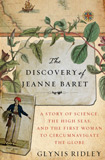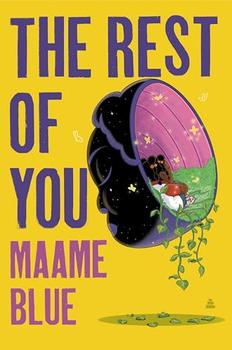Page 1 of 5
There are currently 30 member reviews
for The Discovery of Jeanne Baret
-
Ginger K. (Ballwin, MO)
For the sake of knowledge
Well researched and downright fun describes "The Discovery of Jeanne Baret". The book is a treat for anyone interested in plants and animals as we circumvent the globe with this indomitable heroine and company. A stowaway posing as a young male on the ship she suffers hardships and perils described by the author in sometimes agonizing detail..................such was her devotion to discovering new plant life. This is realism and history shown through a personal story at its best.
-
Teresa R. (Fort Collins, CO)
A skillfully told tale
Academic historian Glynis Ridley did formidable research on the state of scientific inquiry and social class in 18th century France for this book. Yet her account of the overlooked heroism and privations suffered by Jeanne Baret is laid out in a lively and readable narrative—by turns fascinating and appalling. Meticulously citing historical records, Ridley bears witness to Baret's courage and accomplishment despite years of brutish living conditions and physical and psychological assaults, not to mention the loutish behavior she bore from her lover, Philibert Commerson, the botanist whose career she helped advance and for whom she embarked on the round-the-world voyage.
Reading this book in the comfort of an easy chair brings awareness of the ease and privileges enjoyed by Western women of today. In solidarity with Ms. Baret, one should consider reading the book in low candlelight, perched on one’s haunches in a bare, drafty room. Either way it’s compelling and engrossing non-fiction.
-
Lesley F. (San Diego, CA)
A Great Discovery!
WOW! The research is deep and accurate, the story fascinating, as a new page in women’s history is written. The author has managed skillfully to make sense of very scant (what else) information about the first woman to circumnavigate the globe. Women’s Studies groups and sailing fans as well, will enjoy this one immensely. This will soon be on our social history book group’s list.
-
Marion T. (Palatine, IL)
The Discovery of Jeanne Baret
After reading the introduction to this book, I was very excited to start the read. However, the book started to read like a thesis That being said, there is a lot of information about the world as it was during this time. Subjects that I had very little information, but enjoyed finding out about. The author certainly did the research required to make it a complete account. I would have liked to know more about Jeanne Baret as a person since she reads more like a one dimensional character than the courageous person that she was. Understandably the author could not do that since it is stated that there is very little truly known about her other than what is stated. Possibly written as a historic fiction would make a wonderful movie.
Would have like to have a readily available map of the time to trace the journey.
[Editor's Note: Marion was reading an 'advanced readers copy' of this book, printed some months before the final copies - it is quite common that elements such as maps and photos are not included in the advanced copies but are included in the finished version.]
-
Jeanne M. (Vancouver, WA)
Masquerade on the High Seas
I was hoping that this would be a first person historical novel, but was delighted to find that the third person historic revelations were fascinating and led to a more thorough expose' of the connections to the explorers and their travels and travails.
Jeanne Baret's disguise as a boy allows her to be an assistant to a botanist. In this role she collects and classifies plants a t a time when the system of classification was emerging.
This is a well researched account of the voyage and discoveries that occurred, told in a way that captures the reader.
-
Jean O. (DePere, WI)
The Discovery of Jeanne Baret
The Discovery of Jeanne Baret is a story of an obscure woman the 1700's. The book is based on history that is patchy and contradictory. The author's research appears to be extensive and thorough. The contradictions and missing pieces in the journals, ship's logs and other records that were researched lead the author to suppositions and logical outcomes. It is a scholarly piece of work. In my opinion this is not a book for everyone.
I did enjoy reading it.
-
Julie Z. (Bennington, VT)
The Re-discovered Jeanne Baret
Jeanne Baret was a fascinating character, who like many women, was forgotten, despite her accomplishments. She traveled the world in the time of discovery, collecting botanical specimens. On a relatively small ship, in close quarters with scores of men, she masqueraded as a man, as women were not allowed aboard.
Unfortunately, she never wrote an account of her travels, and what narratives do exist, are not consistent with one another. The author is meticulous in her scholarship, and provides much important information about the society, and gender roles of the period. Still, what Baret thought and felt can only be guessed at, and the author's guess is only that. I suppose if she didn't make a stab at imagining this, that the book would be quite short.
I found myself arguing with the author, playing devil's advocate, offering my own interpretation. Maybe if she had paralleled what she wrote about Baret with another woman's story that was better documented, I wouldn't have felt that it was more a projection of the author's emotions and ideas, than an accurate picture of Baret's.




